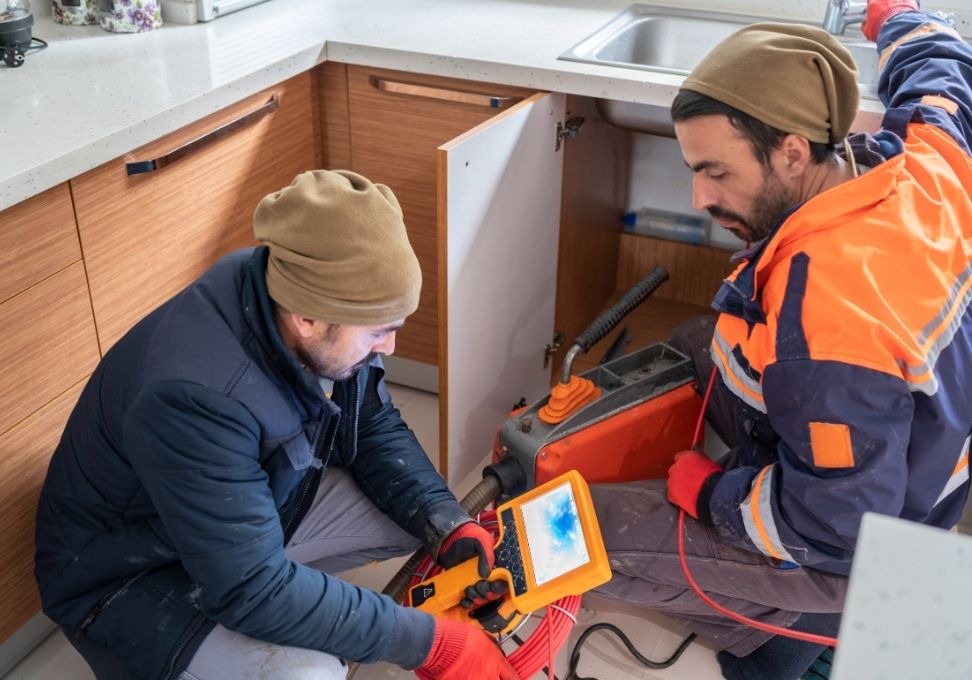How Often to Schedule Sewer Inspections

Introduction
A well-functioning sewer system is essential for maintaining the comfort, safety, and sanitation of your property. Over time, sewer lines can develop blockages, cracks, or other issues that may go unnoticed until they cause costly damage. Regular sewer inspections help identify and address these problems early, ensuring your system remains in good working order. Whether you own a home or manage a business, understanding how often to schedule these inspections is key to preventing emergencies and protecting your investment.
This guide explains the ideal sewer inspection frequency, factors that affect scheduling, and the benefits of routine assessments.
Why Sewer Inspections Matter
Sewer inspections are more than just a preventive measure; they are an important part of property maintenance. A professional inspection can:
- Detect hidden blockages before they lead to backups.
- Identify cracks, corrosion, or tree root intrusion in sewer lines.
- Help plan timely repairs, reducing the risk of emergency plumbing services.
- Protect your property value by keeping the sewer system in good condition.
Neglecting inspections may lead to unpleasant odors, slow drainage, water damage, and even health risks from sewage exposure.
Recommended Sewer Inspection Frequency
Annual Inspections for Older Systems
If your property is over 40 years old, it is wise to schedule sewer inspections at least once a year. Older pipes are more likely to have corrosion, weakened joints, and other age-related wear. Regular checks help spot problems early and extend the life of your system.
Every 18–24 Months for Newer Systems
Newer sewer systems built with modern materials such as PVC or HDPE may not require annual inspections. A check every 18 to 24 months is often sufficient, unless you notice warning signs such as slow drains or foul odors.
More Frequent Checks for High-Use Properties
Businesses such as restaurants, hotels, and apartment complexes typically require more frequent inspections due to heavier usage. These properties should schedule checks every six months to avoid blockages caused by grease, food waste, or other debris.
Factors That Affect Inspection Frequency
Age of the Sewer System
Older pipes made from cast iron, clay, or Orangeburg are more prone to deterioration and may need more frequent inspections.
Tree Root Activity
If trees or shrubs are planted near your sewer line, roots can infiltrate the pipes and cause blockages or cracks. In areas with heavy tree root growth, inspections should be scheduled at least once a year.
Soil and Weather Conditions
Shifting soil, heavy rainfall, and freezing temperatures can affect underground pipes. Properties in areas with these conditions may require additional inspections after extreme weather events.
Previous Sewer Problems
If you have experienced backups, collapses, or repairs in the past, your system should be monitored more closely to prevent a recurrence.
What Happens During a Sewer Inspection
Professional sewer inspections often use advanced tools to thoroughly assess the system. Common methods include:
- Video Camera Inspections – A small, waterproof camera is inserted into the sewer line to identify blockages, cracks, and other issues.
- Hydrostatic Testing – Measures water pressure to detect leaks or weaknesses in the line.
- Smoke Testing – Introduces non-toxic smoke to locate cracks or improper connections.
The inspection typically concludes with a detailed report outlining any concerns and recommended maintenance or repairs.
Benefits of Regular Sewer Inspections
Prevent Costly Emergencies
Catching issues early helps avoid the expense of emergency plumbing repairs, which can be significantly more expensive than preventive maintenance.
Improve System Efficiency
A clean, well-maintained sewer line allows wastewater to flow freely, reducing the risk of backups and slow drainage.
Protect Health and Safety
Preventing sewage backups safeguards your home or business from harmful bacteria and unpleasant odors.
Plan for Future Repairs
Regular inspections give you a clear picture of your system’s condition, allowing you to budget and plan for any necessary repairs or upgrades.
Signs You May Need an Immediate Sewer Inspection
Even with a set inspection schedule, certain warning signs require prompt attention:
- Persistent foul odors coming from drains or around the property.
- Multiple drains are clogging at once.
- Unusual gurgling sounds from toilets or sinks.
- Water is pooling in the yard over the sewer line.
- Sewage backups in sinks, tubs, or toilets.
Addressing these signs quickly can prevent more serious damage.
How to Choose a Sewer Inspection Service
When selecting a professional for your inspection, look for:
- Licensing and Insurance – Ensure the company is qualified and covered for liability.
- Experience with Your Type of Property – Residential and commercial systems may require different approaches.
- Advanced Equipment – Video camera inspections and trenchless methods offer accurate, minimally invasive results.
- Clear Reporting – Choose a provider that offers a detailed report with findings and recommendations.
The Role of Preventive Maintenance in Sewer Health
Scheduling inspections is just one part of maintaining a healthy sewer system. Preventive measures such as proper waste disposal, avoiding grease buildup, and regular drain cleaning can greatly reduce the risk of blockages and other issues.
Following best practices for maintaining sewer lines ensures that inspections are effective and the system remains in good working order for years to come.
Conclusion
Knowing how often to schedule sewer inspections can save you time, money, and stress. While general guidelines recommend annual or biennial inspections depending on the age and usage of your system, factors such as tree root activity, soil conditions, and past sewer problems may require more frequent checks.
By combining regular inspections with preventive maintenance, you can protect your property from costly repairs, improve system performance, and ensure a safe, sanitary environment. Choosing https://rhinorooter.net/davis-county/west-haven-utah/ for service means working with trusted experts like Rhino Rooter Sewer & Drain Trenchless Repair - West Haven, Utah, who specialize in reliable and efficient solutions.
